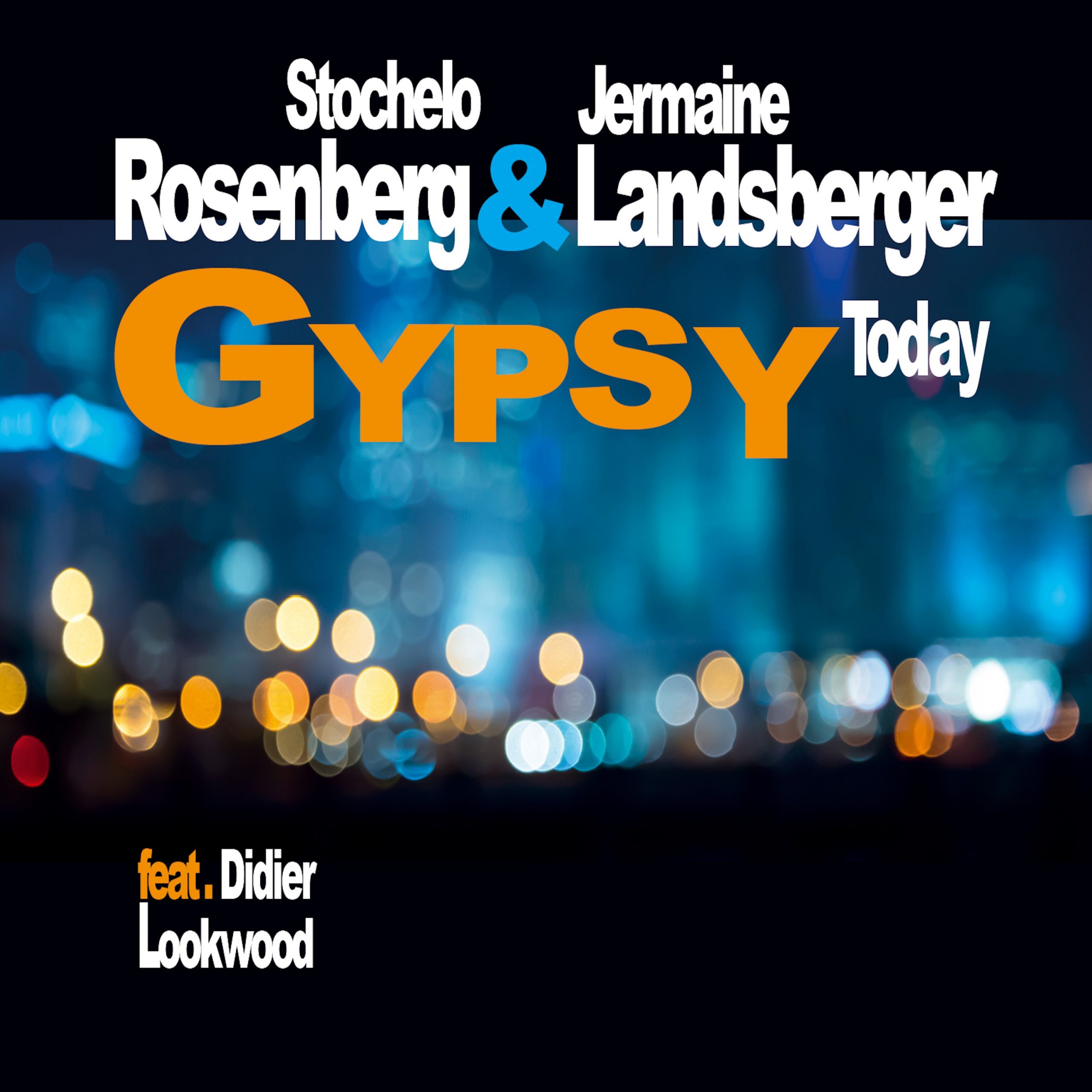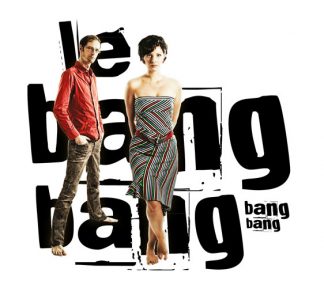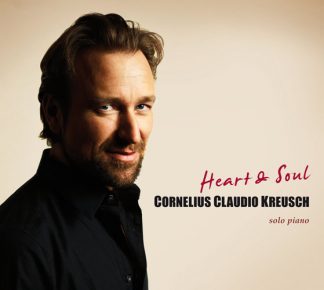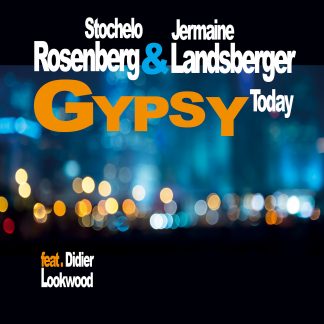Description
Stochelo Rosenberg guitar
Jermaine Landsberger piano
Didier Lockwood violin
Joel Locher bass
Darryl Hall bass
André „Dede“ Cecarelli drums
Sebastiaan de Krom drums
The most important European of the classical jazz era was undoubtedly Django Reinhardt. With his “Hot Club de Paris”, the unmatched virtuoso and swinging guitarist invented the only style in the 1930s that did not come from the USA: Gypsy Swing – also known as hot jazz. As the name suggests, Reinhardt’s music is closely linked to the musical tradition of the Sinti, and to this day it is the self-taught instinct musicians of these ethnic groups who maintain and carry on Reinhardt’s stirring and timeless style.
There has been little doubt in the professional world, who would take Reinhardt’s place on the throne of the hot jazz guitar king: it is the 48-year-old Dutch Sinto Stochelo Rosenberg who won the first major guitar competition at the age of twelve. This is also shown by the fact that Reinhardt’s long-time partner, violinist Stephane Grappelli, invited the 25-year-old Rosenberg to a concert in Carnegie Hall in 1993 and then regularly went on tour with him. And when Reinhardt’s life was filmed in “Django – A Life for Music” in 2017, Rosenberg was the first choice for the soundtrack, which he accomplished with absolute authenticity.
Rosenberg had only recorded his first album at the age of 21, but two records later he received the golden guitar of the specialist magazine Guitarist for his services to the acoustic guitar. The breakthrough came, so to speak, with a family affair, the Rosenberg Trio with his cousins Nous’sche and Nonnie. This formation is still considered the epitome of a hot jazz trio with solo guitar, rhythm guitar and bass. For a long time, Stochelo Rosenberg rarely left the path of the classic Reinhardt Gypsy Swing – accompanying the songwriter Hermann van Veen was such an exception. Calling his new album “Gypsy Today”, is an expression of a programmatic opening that is connected with the ten-year-old partnership with the pianist and organist Jermaine Landsberger, which is the key to this recording: “Jermaine has supported and driven me to play much more modern than I did before. He took me where I always wanted to go. For me he will always be the best gypsy jazz pianist and composer”, Stochelo says about his friend.
Indeed, the sprout of a Sinti family, who was born in 1973 in Vilsbiburg in Lower Bavaria and has long lived in Nuremberg, is an exceptional figure in the scene. Because he chose not the guitar or violin typical of Gypsy Swing as an instrument, but the piano. Already at 18 he was interested in modern jazz piano from Oscar Peterson to Keith Jarrett or Herbie Hancock, which “scared the Gypsy traditionalists a little”, he says. On the other hand, the Sinti elements always remained part of his game, which still gives him a unique selling point. His bands sounded and sounded unmistakable: the early trios from the mid-1990s with the Scottish jazz guitarist Martin Taylor; the collaborations with Biréli Lagréne, probably the most modern and the most open to fusion and jazz influences of all Sinti guitarists, with whom Stochelo Rosenberg has often played; or also his organ projects like Hammond Eggs, in which jazz stars like Pat Martino, Randy Brecker, Bob Mintzer or Larry Coryell participated. His current, new piano trio with drummer Donald Edwards and bassist Darryl Hall is a complete New York affair.
The combination of the avant-garde pianist Jermaine Landsberger with the continuing Reinhardt heir Stochelo Rosenberg had to inevitably catapult hot jazz into the present while respectfully preserving his qualities: “Gypsy Today”. Or as Rosenberg puts it: “I am not a modern jazz guitarist; I think more in the spirit of the late Django Reinhardt from 1953. But I believe that it is time to move this music into another time – into 2020. If you look at his own development from the thirties to the fifties, that would certainly have been in the spirit of Django.”
Kurt Weill’s “September Song” already demonstrates how this works perfectly and gives a perfect start into the album. Drumbeats bring groove into the swing, the piano conjures up bebop chord accompaniment as well as modern improvisation solos, Rosenberg’s guitar combines the tone of the gypsy guitar and its frenzied runs with a calm, clear sound that is almost reminiscent of Wes Montgomery. The program is later also reflected in the title of a Landsberger composition: “The Bebop Gypsy”. The innovative power of “Gypsy Today” is perhaps clearest in the two Django-Reinhardt originals that Rosenberg and Landsberger selected: “Double Scotch” transforms into a humorous Boogaloo number that recreates the Parisian manouche flair in New Orleans under their hands. The melancholic ballad “Anouman” in turn picks up speed with a walking bass motif and gets a fresh, playful touch through Landsberger’s solo escapades.
The beautiful standard “Poinciana”, updated here with a Latin rhythm and the hot jazz stops, comes with three original compositions of the two. The title song, which combines the tempo and swing of the Sinti swing with modern harmony and groove-oriented rhythm, comes from Landsberger’s pen. Rosenberg contributed completely new material such as the suspenseful “Double Jeu”. At the end of the album, Paquito D’Rivera’s “Seresta” can be heard, which Rosenberg recorded on his first record in 1989. Now, of course, in a pure piano / guitar duet and on the status quo of hot jazz exegesis: as “Gypsy Today”.
Naturally, their excellent companions contributed to the success of this ambitious project. Again, the two combined their strengths: on bass, Landsberger’s current companion Darryl Hall and the German-Swiss gypsy swing specialist Joel Locher (who can also be heard on the new album by Wawau Adler just released by GLM) share the work, on drums the great French drummer André “Dede” Cecarelli and the London-based Sebastiaan de Krom. They all play five titles each.
But “Gypsy Today” gets its special note from the guest star, who was the starting point of Landsberger’s and Rosenberg’s plans for the album: the French violinist Didier Lockwood, a multi-stylist and, alongside Mark Feldman, an outstanding luminary of the jazz violin. He was surprised by the modern concept of the two, but was all the more pleased, and recorded the three pieces of the album written by Landsberger with the band in 2015 with typical panache, technical brilliance and improvisational creativity. When Lockwood died unexpectedly in 2018, the shock was so great for Rosenberg and Landsberger that they decided not to release the already finished album. Two years passed, everything was checked again, another studio session was scheduled, and finally the okay was given. “Gypsy Today” is now not only a clear message for the future of Sinti swing, but also a legacy of the incomparable Didier Lockwood. That is why Rosenberg and Landsberger dedicated the album to him.






Reviews
There are no reviews yet.